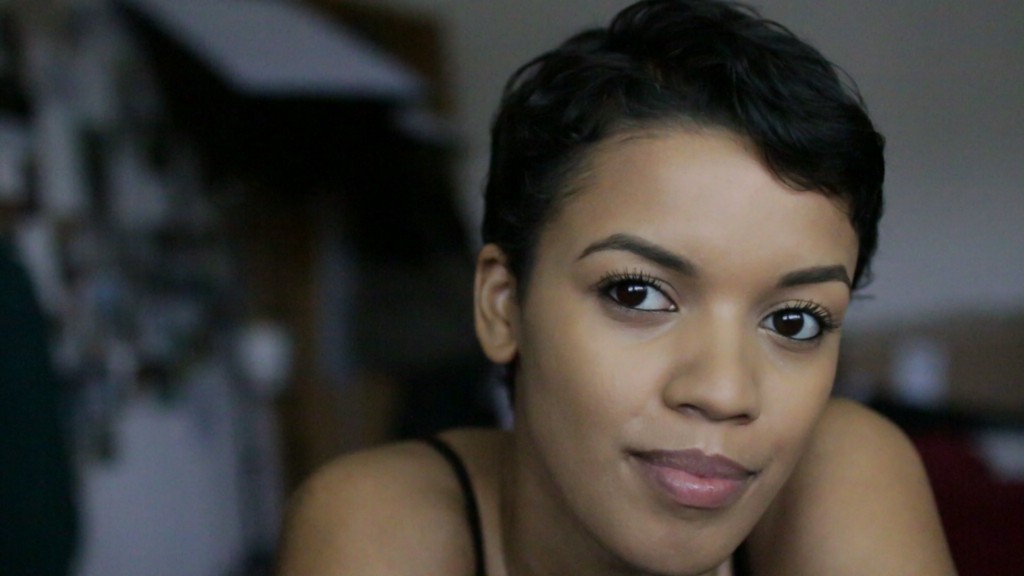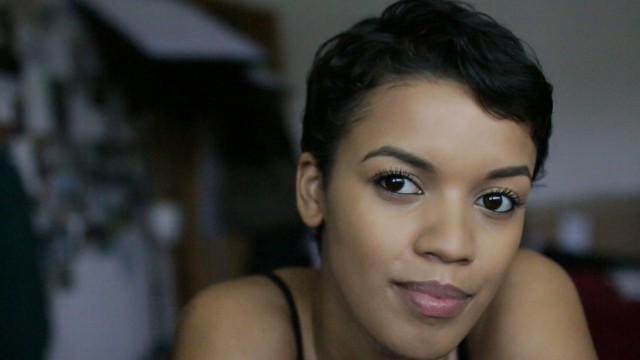Documenting The Conversation: An Interview With Cecile Emeke
by Hannah Giorgis


Watching a Cecile Emeke film is like walking into a slam poetry club with your friends and hearing someone spit lines about that sleepover y’all had the time you were supposed to be studying for finals. You know, the one when you stayed up watching Beyoncé videos and eating hot Cheetos instead of reading your psychology textbook (and learned more that way).
Her work is playful, poignant, and ever evolving; it is at once both familiar and provocative. A UK-based multimedia artist and storyteller, Cecile creates art that transcends boundaries and borders while celebrating the magic of women throughout the African diaspora. The Strolling traces the experiences of Black youth in London as they grapple with complex — yet common — concerns. Fake Deep takes some (much deserved) shots at paternalistic, sexist men. Ackee & Saltfish follows two young Black women as they laugh, talk, and explore the world around them. This curiosity about the world and desire to make sense of its contradictions show up throughout much of Cecile’s art across various mediums. I caught up with her to talk about her inspiration, Black women’s place(s) in the art world, and what she sees next on the horizon.
Tell me a little bit about yourself. When were you first drawn to art? What does art mean for you or enable you to do as a Black Brit and as a woman?
I consider myself an artist and a creative. I’ve always enjoyed creating things since I can remember. I like to create things that I enjoy watching, looking at and reading. It enables me to create my world where I exist.
When and why did you first start working with film? What does it offer you as a tool that other forms of creativity might not?
I think my relationship to different mediums continues to grow as I continue to experiment and try new things. I first started working with film earlier this year because the vision I had for an idea seemed to fit best in the realm of film. I like the fact that film enables me to recreate and capture the realness of a moment.
Where did you get the idea for your Strolling series? What was your goal in bringing folks together to have those conversations?
I was inspired to start documenting the conversations, or rants, me and my friends were regularly having; whether it was us ranting about the obvious yet denied racial component of gentrification happening in East London, or how we are sick of working like dogs and being broke while the Queen and the rest of the privileged elite are chilling on our tax money and generational wealth off of the blood spilt by the British Empire. The goal is to affirm like-minded people, as being perceptive to these sort of issues can often make people feel alienated and in turn, silence them.
How do you navigate categories and labels that British art, and western art in general, tries to ascribe to the work of black artists?
It’s important to state that most black artists aren’t even recognized as artists half the time. It’s that same devaluation of blackness that makes slicked baby hairs “high fashion” on a white model but “ghetto” on a black person. Our art apparently isn’t real art until “whiteness” recognizes, appreciates, or appropriates it. With that being said, I tend to ignore all standards, categories and labels in both British and western art because there is no value in those categories and labels when they have proven to systematically ignore, undervalue and erase some of the most innovative and talented artists to exist.
How have you found or built community — either in the art world or outside of it? Do you feel affirmed and supported by other artists? Who nurtures your gifts?
I’m lucky enough to have a few individuals in my life involved in the art world that affirm and nurture my talents; they see what I see in myself. Sometimes all you need is someone to really see you and it makes all the difference. I hope my work can help people feel like they’ve been seen in some way.
Who are some of your artistic and political inspirations? How does that inspiration show up in your work?
The list is endless and changes depending on my mood. Sometimes it’s Malcolm X, other days it’s TLC. I’m generally inspired by people who are honest and seem free within themselves, whether it’s Toni Morrison or a stranger on the train.
Tell me about Ackee & Saltfish. How does fiction differ from your other films? How does Ackee & Saltfish play with ideas of diasporic blackness?
I guess diasporic blackness is the name for what creates that conversation between black children at school in the UK: “What are you? African or Caribbean?” It’s just something that is a given here. I’m sure depending where you are in the world, the situation is different. Ackee & Saltfish definitely is told with only the Black british gaze in mind. For example, British-born Olivia constantly refers to “White people” as “English people” which is quite telling. That might confuse someone in America or elsewhere watching because to them Olivia is very much English, but these little nuances throughout the film give an insight to the complexity of diasporic Blackness in the UK.
https://www.youtube.com/watch?v=JtVSputUs4Y
Fake Deep is everything. I sent it around to so many of my friends who are also black women…and everyone had at least one dude immediately come to mind. How did that project come together? How did it feel to address that group of men so directly?
Thank you! I basically just wanted to sum up my sentiments towards the insidious and intimate oppression that patriarchy facilitates concisely, in some kind of art form. I felt like I hadn’t seen that before, or if I had it seemed to have the male gaze in mind and therefore it felt dishonest to the frustration that I actually felt, probably due to [others] not wanting to hurt men’s egos. Even though the words of the poem are addressing “fake deep,” that wasn’t my primary aim. It was more of a vehicle to affirm other women. But that being said, I didn’t feel any kind of way addressing that group of men. I just hope, between the “fake deep” types attacking women in the comments and those steeped so deep in denial that they can affirm the poem despite still regularly engaging in the destructive behaviors that it calls out, that there may have been a few men that were able to digest the words properly.
Where do you see your work going in the future? How do you want to challenge yourself and the people around you?
I believe in the value of my vision and talents, so I see good things happening in the future. But my only real goal is to continue to create things that I would want to watch, read or look at myself. I hope that me staying true to myself will challenge people around me to do the same — it’s a hard thing for all of us to do in a world that requires you to cut yourself up into pieces to survive, but I think it’s worth it.
Image courtesy of Cecile Emeke.
Hannah Giorgis is a writer and organizer based in New York. She likes bad TV, even worse puns, and daydreaming about her future with Andre 3000. You can follow her on Twitter @ethiopiennesays.